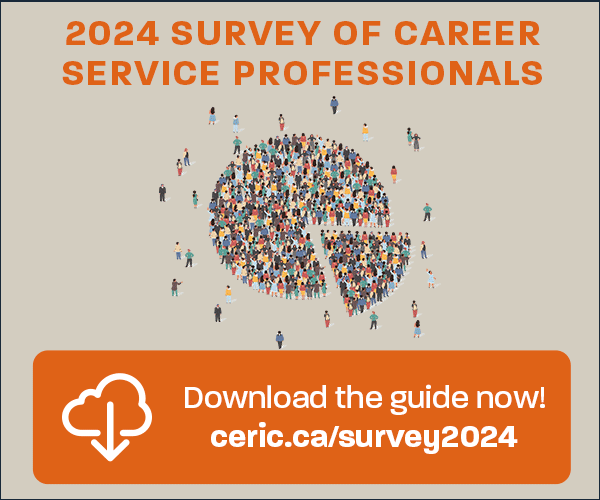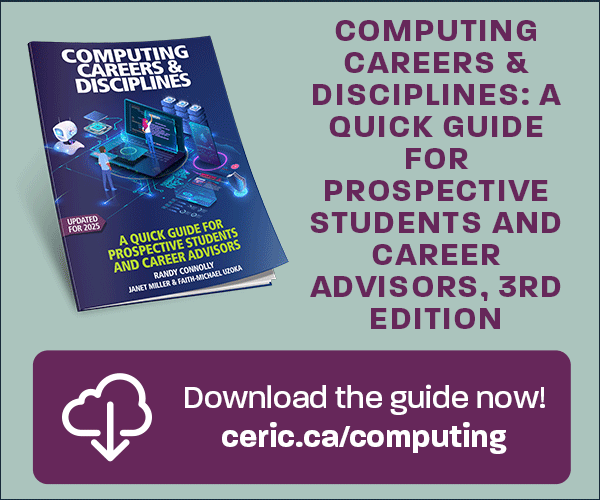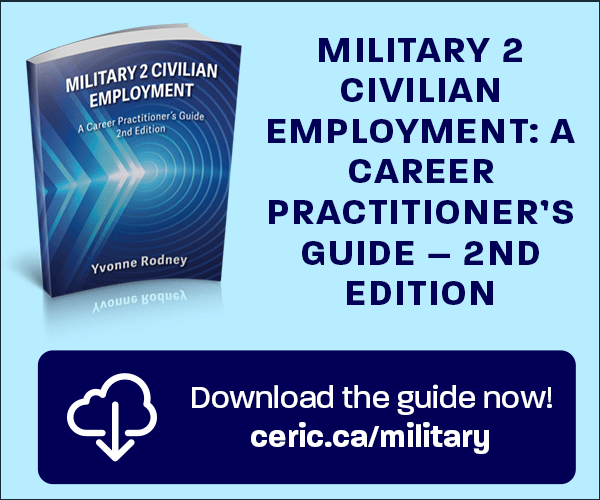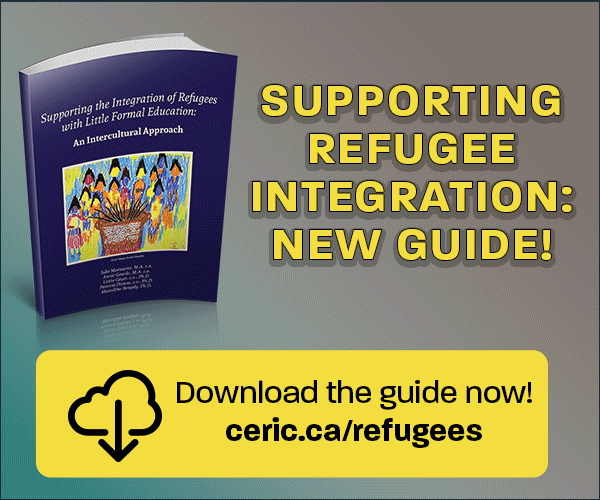Understanding the Possible Impact of a Community Service Learning Experience during University on Career Development
Keywords:
community service learning, experience, university, career development, volunteerAbstract
There is general consensus that volunteer and community servicelearning (CSL) experiences are important to career development even though research remains unclear on the relationship and about how best to help students make a link between service and career decisions. This study investigated the possible impact of CSL experiences on students’ career development among a sample of Canadian university students. Interviews were conducted with students (N = 36) who had completed a CSL component in one or more psychology courses. Responses revealed that there are many factors and stakeholders involved in the relationship between a service-learning experience and career thinking, and different aspects of the experience can affect career choice in different ways. Further analysis of interview data found a connection between CSL and career thinking either towards or away from confirming a career choice and the type of impact varied by four characteristics: (1) the number of placements, (2) reflection assignments and activities, (3) emotional engagement, and (4) matching/degree of fit between the placement setting and a student’s expectations for the placement. Our findings may explain the inconclusive and unexpected findings of past research and guide career counsellors and teachers in facilitating reflections that foster student career development.
References
Astin, A. W., & Sax, L. J. (1998). How undergraduates are affected by service participation. Journal of College Student Development, 39, 251-263.
Batchelder, T. H., & Root, S. (1994). Effects of an undergraduate program to integrate learning and service: Cognitive, prosocial cognitive, and identity outcomes.
Journal of Adolescence, 17, 341- 355.
Burke, M J., Scheuer, M L., & .Meredith, J. A. (2007). A dialogical approach to skill development: The case of safety skills. Human Resource Management Review, 17,
-250.
Cahill, K., & Philley, (2001) “Communication Tech Tutors” available at: http://www.compact.org/syllabi/communications/communicationtech-tutors/3796/ (accessed 20, February, 2010)
Canadian Alliance for Community Service-Learning, “What is Community Service-Learning?” available at: http://www.communityservicelearning.ca/en/welcome_wh
at_is.htm (accessed 14, September, 2010)
Clary, E. G., Snyder, M., Ridge, R. D., & Miene, P. K. (1994). Matching messages to motives in persuasion: A functional approach to promoting volunteerism. Journal of Applied Social Psychology, 24, 1129-1149.
Coplin, W, (2001), “Methods of Policy Analysis and Presentation” available at:http://www.compact.org/syllabi/public-policy/methods-ofpolicy-analysis-and-Presentation/3919/ (accessed at 20, February,2010)
Ellis, J.R. (1994). Volunteerism as an enhancement to career development. Journal of Employment Counseling, 30, 127-132.
Fairless, B., “Volunteer Experience” available at : http://www.compact.org/syllabi/social-services/volunteer-experience/3944/ (accessed 20, February, 2010)
Franta, P. (1994). Service-learning: A new priority for career centers. Journal of Career Development, 21, 131-134.
Garg, R., Kauppi, C., Urajnik, D., & Lewko, J. (2010). A longitudinal study of the effects of context and experience on the scientific career choices of Canadian adolescents. Canadian Journal of Career Development, 9(1), 15-24.
Gemmel, L., & Clayton, P. (2009). “A Comprehensive Framework for Community Service-Learning in Canada”, Canadian Alliance for Community Service-Learning.
available at http://www.communityservicelearning.ca/en/documents/AComprehensiveFrameworkforCSL.pdf (accessed 14, September, 2010)
Gray, M.J., Ondaatje, E.H., & Zakaras, L. (1999). Combining service and learning in higher education: Summary Report. (Available from Rand Education, 1700 Main Street, P.O. Box 2138, Santa Monica, CA 90407-2138)
Hedin, D., (1995) “Current Research and Methods of Assessing Community Service” (Available from NYLC Resource Center at www.nylc.org).
Hodge, G., Lewis, T., Kramer, K., & Hughes, R. (2001). Collaboration for excellence: Engaged scholarship at Collin County Community College. Community College Journal of Research and Practice, 25, 675-690.
Jung, G., Tang, J., Piessens, P., Grant, U., Johnson, N., & Murray, H. (1999). Community learning: The reach for health nursing program middle school collaboration. Journal of Nursing Education, 38, 215-221.
Keith, J. F. (1995). Introducing a campus to service learning. Journal of Career Development, 22, 135-139. Retrieved from www.csa.com
McCarthy, A. M., Tucker, M. L. (1999). Student attitudes toward service learning: Implications for implementation. Journal of Management Education, 23, 554-573.
Schwartz, S. H. (1977). Normative influences on altruism. In L. Berkowitz (Ed.), Advances in Experimental Social Psychology (Vol. 10, pp. 221-279). New York: Academic Press.
Sledge, A.C., Shelburne, M., & Jones, R. (1993). Affective Domain Objectives in Volunteer Courses for Postsecondary Teachers. Paper presented at the Annual Meeting of the Mid-South Educational Research Association, New Orleans, LA.
Sutherland, D., Doerkson, M., Hanslip, T., Roberts, J. Stewart, S. Sagnes, Friesen-Storz, T. (2006). Youth volunteerism: measuring the benefits of community service learning programs. Report. Knowledge Development. Imagine Canada.
Tartter, V.C. (1996). City College Report to FIPSE. New York: City College Research Foundation. Taylor, K.M., & Betz, N.E. (1983). Application of self-efficacy theory to
the understanding and treatment of career indecision. Journal of Vocational Behaviour, 22, 63-81.
Vogelgesang L.J., & Astin, A.W. (2000) Comparing the Effects of Service-Learning and Community Service. Michigan Journal of Community Service Learning, 7, 25-34.
Wade, R, (2008), “Elementary Social Studies”, available at : http://www.compact.org/syllabi/education/elementary-socialstudies/4198/ (accessed at 20, February, 2010)
Wolff, M., P. (2002). Pre and posttest analysis of a strategic service learning project. Retrieved from Dissertation Abstracts International: Section B: The Sciences
and Engineering Vol 64(6-B), 2003, pp. 2900.

Downloads
Published
How to Cite
Issue
Section
License

This work is licensed under a Creative Commons Attribution-NonCommercial-NoDerivatives 4.0 International License.
















